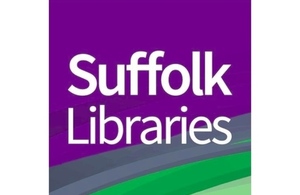Suffolk Libraries: developing your governance structure
Developing your governance structure as a mutual from Suffolk Libraries

Suffolk Libraries logo
Suffolk Libraries are a community owned co-operative with a membership drawn from the community groups which support its 44 libraries.
The board comprises 7 directors and the Chief Executive Officer (CEO) who is ex-officio with full voting rights. The directors must be elected from the membership, and this is done at the AGM each year. It has now had 4 AGMs so has reached a retirement cycle whereby 2 or 3 retire each year.
For the first 18 months, from February 2012, Suffolk Libraries had an interim board which was appointed by the council from applications. It worked with the CEO to build the membership to enable a meaningful election to take place in September 2013 at the first AGM. By then it had 36 members out of a potential 44 and the first true board was elected. Since then there has been a healthy and varied queue of people with multiple skills standing for election and joining the board.
The board’s role is to set the strategic direction, oversee the finances, ensure that the organisation is solvent, and delivering on the contracts in place. In the last few years the board has also taken an active role in sponsoring innovation, leadership development, staff engagement and stakeholder relationships.
It takes a while to establish meaningful but essential boundaries between governance and management. For the first 18 months this was sometimes rather blurred, primarily because Suffolk Libraries had limited commercial expertise and resource, and it went through a significant transformation programme. This did cause problems at times, and used up energy and resource which might have been better deployed elsewhere.
Suffolk Libraries was also developing in parallel its governance procedures and support. It took a while to get these right, and it is still reviewing them to ensure the right committees and delegations are in place. After 5 years they are now well established, routine and effective.
Strategic decision making needs consistent and well informed systems, supported by accurate and timely information on the finances, activities, developments and progress with projects.
The relationship between the Chair and the CEO is also crucial, and should be a well-balanced relationship of equals with trust and respect on each side. Together they lead the organisation.
Top tips from Suffolk Libraries
Meaningful governance needs experience and expertise to ensure that it operates as a well-oiled machine. Don’t skimp on this as good and robust decision making needs to be informed by well-timed and accurate information. It’s so much more than taking the minutes. Suffolk Libraries’ Governance Manager keeps everything on track, liaises with Committee Chairs and the Board Chair and ensures that everyone is getting everything done in time.
At the beginning you may need different skills on the board to help you start up a new organisation, with commercial, legal, employment and finance skills. These are very helpful but don’t make the mistake of getting board members to do the work of expert staff beyond the start-up phase. Non-executive board members are not paid and they may not be insured to cover their actions or the advice they provide. They also may move on, which may affect business continuity.
In the medium and long term you must ensure that the respective roles of management and governance are clearly defined and proportionate. They must be aligned as a strong and joined up leadership. In its mutual, senior staff attend board meetings as observers, and it holds a number of joint leadership team and board sessions each year to prioritise and agree the direction.
Meaningful joint working and interaction between the senior leadership team and the board will build mutual respect and trust. Board members must have confidence in the staff, and the staff must respect the role of the directors in making strategic decisions.
Suffolk Libraries’ board members do not get involved in day to day management of their local library, or the overall service. It does not include them in complex situations like HR casework and hearings; however they can be a good sounding board for issues of concern, identifying ways to manage risk and succession planning.
Finally the best way to ensure that all of this is well understood and hard wired into the way the governance works is to ensure that there is strong and supportive induction process for new board members, led by the Chair and the CEO. Suffolk Libraries developed a director’s handbook to provide a gazetteer including all the key procedures with background information for the directors to refer to and use when they are new, or want to check something. Revising it every year is also a good discipline for the senior team.